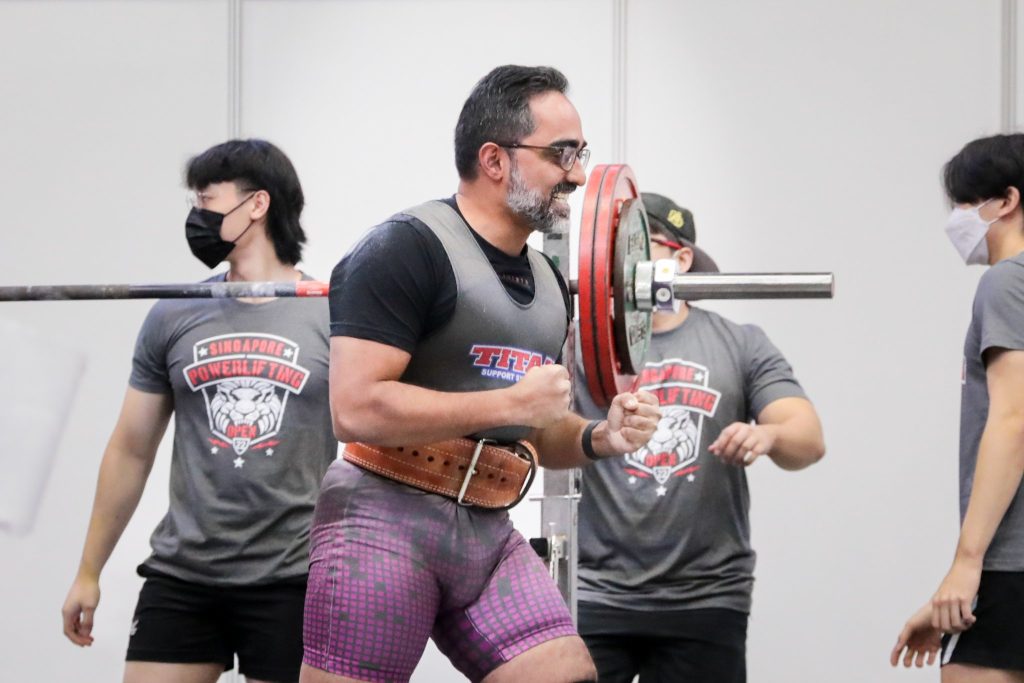
“A harmless man is not a good man. A good man is a very dangerous man who has that under voluntary control.” ~ Dr. Jordan Peterson
In the past week, I have had two separate conversations with two male clients in their 40s; both have smaller builds, very smart and successful in their careers. We discussed how the changes in their physical appearance and ability have affected some of their working relations.
Client A, who’s a banker and stands slightly below 1.7m, believed he looked like a skinny-nerdy man when he weighed 60-ish kilograms. He had a rude client who changed once A became much bigger and stronger. Recently, A discovered that the client does BJJ, which requires tremendous self-discipline and subjecting themselves to voluntary hardship as well. They now have very good working relations due to this mutual respect.
The other client, T, has an almost identical story with similar results – a more cooperative coworker.
Admittedly, many things happened in between, and being skilful and intelligent helps boost credibility amongst their peers. However, if you were them, would you prefer not to be looked down upon as you walk through the door?
This is not an article about small men feeling insecure about their physique and being looked down on. This discussion shows that life is much better when you are a strong and sane person. This is also a discussion that we are inevitably judged by specific standards and treated accordingly, usually unconsciously.
There’s no doubt that in a room full of people, a large confident male with a deep voice commands more attention and respect, at least until that person is proven to be an idiot. That’s almost evolutionary because, historically, people chose their leader based on the ability to hunt and provide.
So when someone like Arnold in his heyday, standing at 1.88m tall and weighing a muscular 110kg, with a deep voice, stands beside a scrawny 1.65m, 60kg man wearing glasses, who commands more respect?
Unfortunately, you have to play the cards you are dealt. If you are a fully grown 1.65m tall man, you will never be as tall or as big as Arnold. However, you can get stronger and bigger, making yourself look more formidable to your audience.
It’s easy to imagine how lifting might help in improving your physical prowess. Some people might find it through martial arts. Both activities push you to be tough and teaches you to overcome your fear, but I’m sure these are not the only two activities that can give you this benefit. Any that physically and/or mentally push you to the limit and force you to adapt and continuously overcome that hardship can provide the same benefit.
With these two gentlemen, lifting allows them to experience and overcome voluntary hardship as they claim positive changes in work interactions.
My next question to them was, was it the physical appearance that commands more respect, or was it the confidence that comes along with the process making them more respected and likeable?
Probably both.
Having the “Dangerous” trait/ability prevents you from being attacked
Lions hunt weaker prey, like zebras or wildebeest. They are less likely to chase gazelles because gazelles are too fast. They won’t try to kill elephants or hippos because if they retaliate, the lions can die from the fight.
In an aggressive situation, humans also behave similarly. The decision to attack or retreat depends on who’s standing before them. Possessing physical threats helps. You won’t mock Connor Mc Gregor in front of his face. Being strong also has the same effect; try Arnold or The Rock.
Peterson also mentioned the “dangerousness” of being articulate and possessing high intellectual prowess. Most people don’t want to risk looking stupid in front of more people by having a word duel with these fast thinkers. Throughout time, societies also value people with clear minds who are effective communicators.
Possessing the “Dangerous” trait/ability gives you better self-assurance and confidence
“The deadlift also serves as a way to train the mind to do things that are hard.” ~ Mark Rippetoe
I believe that the heavy black iron forges not only our body but also our mind. The hard things we do inside the gym train our brains to endure and be resilient in adversity. Another lifter in our gym believes he feels less stressed and overwhelmed with the high work demand because he trains.
Someone who handles their stress and manages their emotions better is more trustworthy than people who break under pressure or are swept by anger.
I can’t scientifically explain how Rippetoe’s quote correlates with our client’s improved endurance against stress. However, I believe that being strong sufficiently prepares our bodies for what’s to come.
MENS SANA IN CORPORE SANO – a sound mind in a sound body
Strong people are less neurotic
Research investigating the association between muscle strength and personality traits such as neuroticism, extraversion, and conscientiousness finds that high neuroticism and low extraversion relate negatively to the amount of muscle mass.
Stronger people are more likeable
From the similar research, “the extraversion domain and its facets of warmth, activity, and positive emotions were positively correlated with strength.” These are attributes of more likable people.
As Rippetoe famously said, “Stronger people are harder to kill and more useful in general.” This doubles our argument; not only are they harder to be intimidated, attacked, belittled, or abused, but these resilient people are also more useful for society! And who doesn’t like useful people?

